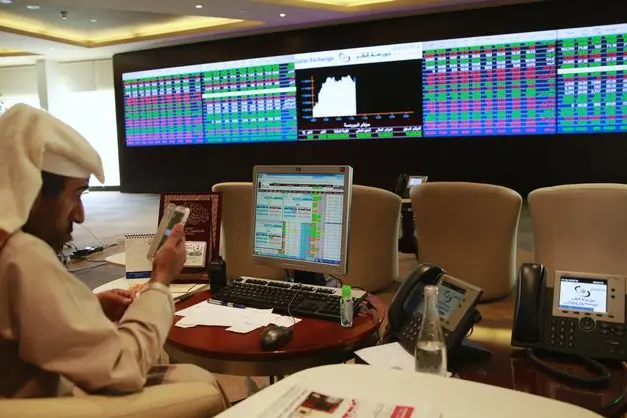PHOTO
18 February 2017
Santhosh V Perumal
Qatar’s fiscal space ought to improve on rebound in oil prices and proposed introduction of value added tax (VAT), thus avoiding a dip into reserves, and will also see gradual debt reduction ahead, according to BMI.
“We believe Qatar’s fiscal balance will swing back into surplus in 2018 as VAT is introduced and energy prices continue to strengthen, facilitating a gradual reduction in debt levels - which currently stand at around 53% of GDP (gross domestic product),” said BMI, a Fitch company.
Qatar’s budget deficit would narrow to 1.1% of GDP in 2017 as higher hydrocarbon prices increase government earnings and measures to diversify state revenue are implemented, it said, expecting Brent to average $57 per barrel this year, near the country’s $60 fiscal breakeven price and “significantly” higher than $45 in 2016 and assumed in Doha’s this year’s budget.
A return to international debt markets by Qatar in 2017 (following its $9bn Eurobond issue last May) appears “unlikely”, given the small size of the forecast deficit; it said highlighting that the focus is on borrowing from the domestic banks in the quarters ahead as borrowing costs remain lower than the investment income lost by drawing down reserves, and to avoid domestic liquidity pressure.
Qatar has already issued QR15bn in domestic debt this year, offering three-year, five-year and seven-year bonds at rates of 2.5%, 3.1% and 3.75%, respectively.
Revenues — over 80% of which come from hydrocarbons — would rise as prices strengthen on the back of a cumulative 1.8mn barrels per day production cut deal by the Organisation of the Petroleum Exporting Countries (Opec) and non-Opec, which became effective from January 1 this year.
Moreover, the $10 airport tax, the planned introduction of excises on tobacco and sugary drinks this year and the GCC-wide 5% VAT in 2018 would generate more income, it said, forecasting Qatar’s revenue at QR251.5bn in 2017 — far exceeding the government’s QR170.1bn target for that year — and QR298.1bn in 2018.
On expenditure, fiscal consolidation efforts would affect current spending to a limited extent as the government is working to improve operational efficiency, lower the public sector wage bill and rationalise subsidies.
Capital spending would however remain elevated, driven by projects linked to the FIFA World Cup 2022 and Qatar National Vision 2030. In 2017 alone, the government has earmarked QR93.2bn for major projects (transport, infrastructure, health and education) — representing 47% of total planned expenditure.
Despite the recent shelving of some ‘non-essential’ projects and plans to enable the private sector take on a greater share of infrastructure funding, expenditure is expected to increase by around 5% annually in 2017 and 2018, it said.
Santhosh V Perumal
Qatar’s fiscal space ought to improve on rebound in oil prices and proposed introduction of value added tax (VAT), thus avoiding a dip into reserves, and will also see gradual debt reduction ahead, according to BMI.
“We believe Qatar’s fiscal balance will swing back into surplus in 2018 as VAT is introduced and energy prices continue to strengthen, facilitating a gradual reduction in debt levels - which currently stand at around 53% of GDP (gross domestic product),” said BMI, a Fitch company.
Qatar’s budget deficit would narrow to 1.1% of GDP in 2017 as higher hydrocarbon prices increase government earnings and measures to diversify state revenue are implemented, it said, expecting Brent to average $57 per barrel this year, near the country’s $60 fiscal breakeven price and “significantly” higher than $45 in 2016 and assumed in Doha’s this year’s budget.
A return to international debt markets by Qatar in 2017 (following its $9bn Eurobond issue last May) appears “unlikely”, given the small size of the forecast deficit; it said highlighting that the focus is on borrowing from the domestic banks in the quarters ahead as borrowing costs remain lower than the investment income lost by drawing down reserves, and to avoid domestic liquidity pressure.
Qatar has already issued QR15bn in domestic debt this year, offering three-year, five-year and seven-year bonds at rates of 2.5%, 3.1% and 3.75%, respectively.
Revenues — over 80% of which come from hydrocarbons — would rise as prices strengthen on the back of a cumulative 1.8mn barrels per day production cut deal by the Organisation of the Petroleum Exporting Countries (Opec) and non-Opec, which became effective from January 1 this year.
Moreover, the $10 airport tax, the planned introduction of excises on tobacco and sugary drinks this year and the GCC-wide 5% VAT in 2018 would generate more income, it said, forecasting Qatar’s revenue at QR251.5bn in 2017 — far exceeding the government’s QR170.1bn target for that year — and QR298.1bn in 2018.
On expenditure, fiscal consolidation efforts would affect current spending to a limited extent as the government is working to improve operational efficiency, lower the public sector wage bill and rationalise subsidies.
Capital spending would however remain elevated, driven by projects linked to the FIFA World Cup 2022 and Qatar National Vision 2030. In 2017 alone, the government has earmarked QR93.2bn for major projects (transport, infrastructure, health and education) — representing 47% of total planned expenditure.
Despite the recent shelving of some ‘non-essential’ projects and plans to enable the private sector take on a greater share of infrastructure funding, expenditure is expected to increase by around 5% annually in 2017 and 2018, it said.
© Gulf Times 2017





















